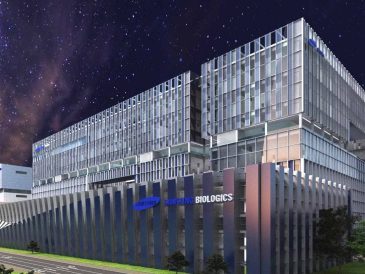Commercial real estate strategies are shifting to growth-driven solutions and entrepreneurs are implementing advanced workplace solutions to empower their workforce and business. The conventional concept of a rigid, nine-to-five working model is undergoing a paradigm shift in response to evolving work trends and tech advancements. Companies are recognizing the value of fully furnished offices that are packed with modern-day amenities and facilities. In recent times, flexible workspaces have gained massive popularity because they’re well-equipped and cater to the different needs of the occupiers. In order to foster a culture of collaboration and innovation, many MNCs and large corporates are leasing flex or managed office spaces for the same.
Moving further in this blog, we will discuss how organizations are redefining the purpose of the office by embracing flexible and managed workspaces.
5 Workplace Trends that are Helping Businesses to Flourish
- Responding to Changing Work Dynamics:
The modern workforce is seeking greater work-life balance, autonomy, and freedom. As remote work gains momentum, employees value the flexibility to choose where and when they work. By transitioning into flexible and managed workspaces, companies cater to the changing preferences of their workforce, leading to higher employee satisfaction and retention rates.
- Flexible Workspaces for Enhanced Collaboration:
Managed and flexible workspaces have emerged as a hub for enhanced collaboration and innovation. These spaces provide a dynamic environment where professionals from diverse backgrounds and industries come together, fostering cross-pollination of ideas and sparking creativity. Companies are leveraging these flexible workspaces to encourage teamwork, networking, and the exchange of knowledge.
- Cost Efficiency and Scalability:
Maintaining a traditional office space can be a significant financial burden for companies, especially startups and small businesses. On the other hand, these fully furnished offices offer a cost-efficient alternative, as businesses can opt for customized lease terms tailored to their needs. Furthermore, managed workspaces allow for seamless scalability, enabling companies to expand or downsize their operations without the hassle of relocating.
- Enhancing Employee Experience:
Employee experience is becoming a key aspect of attracting and retaining the best talents of the organization. By adopting flexible workspace solutions, companies demonstrate their commitment to fostering a healthy work environment that prioritizes employee well-being and work-life balance. These modern workspaces are often equipped with state-of-the-art amenities, ergonomic furniture, and recreational areas, contributing to a positive work experience.
- Technology-Driven Collaboration:
Technology plays a pivotal role in the success of flexible workspaces. Companies are leveraging advanced communication and collaboration tools to facilitate seamless interactions among remote and in-house teams. IoT-enabled meeting rooms, smart washroom, pantry, cafeteria, stores, and many other amenities allow employees to collaborate effectively.
The office of the future is being redefined as companies embrace flexible and managed workspaces. The traditional brick-and-mortar office is giving way to dynamic managed, flexible, and shared office spaces. This transformation not only addresses the changing needs and preferences of the modern workforce but also unlocks numerous benefits for businesses.
By providing employees with the freedom to work in environments that suit them best, companies foster a culture of trust, autonomy, and creativity. The cost efficiency, scalability, and agility offered by flexible workspaces empower organizations to thrive in a rapidly changing business landscape.
Furthermore, adopting flexible workspaces is an opportunity for companies to showcase their commitment to employee well-being, sustainability, and corporate social responsibility. As the demand for flexible work arrangements continues to grow, companies that prioritize workplace flexibility will gain a competitive edge in attracting and retaining top talent.




